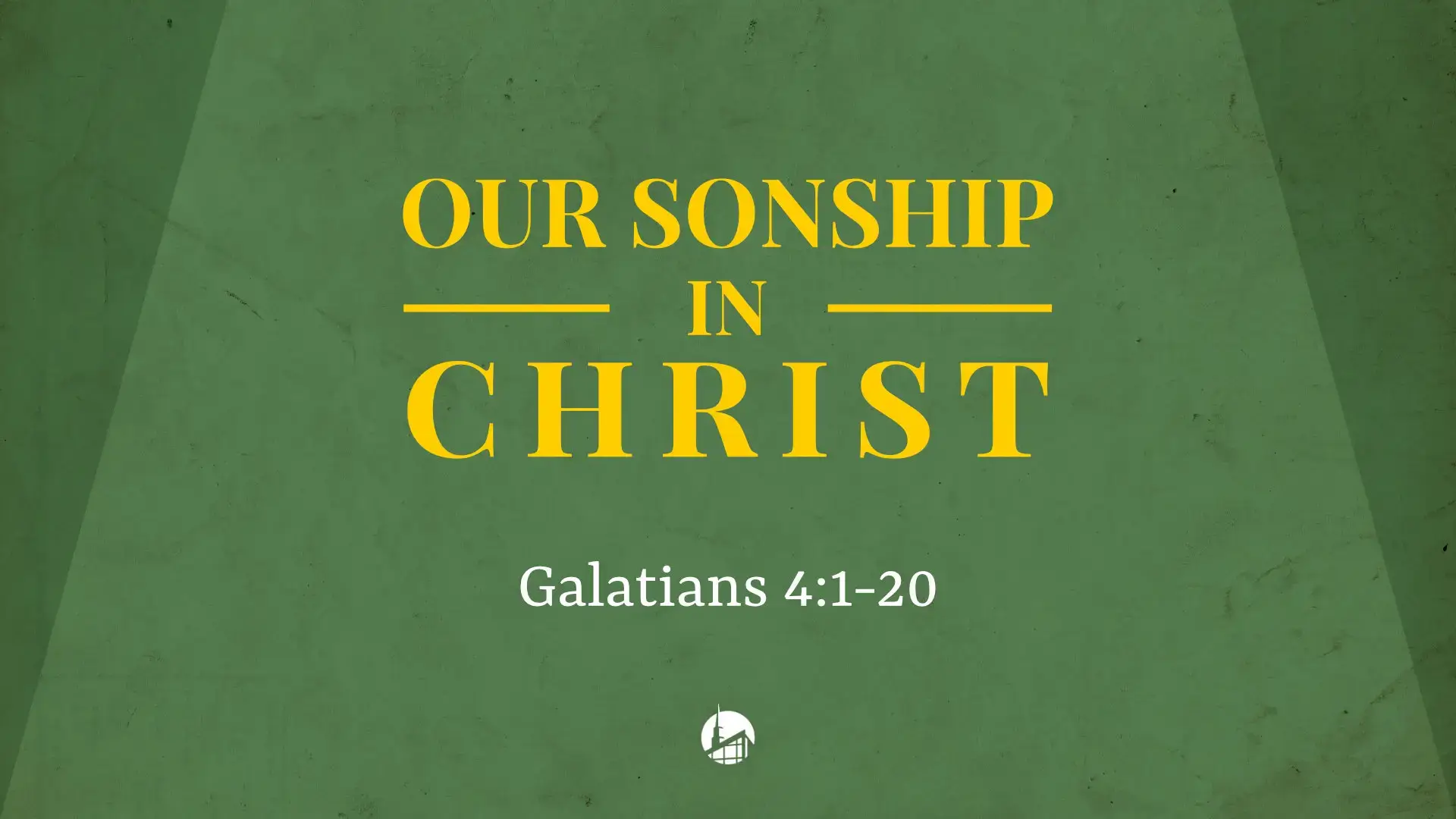Many people think of Christianity as a long list of rules something rigid and restrictive. But Galatians 4 flips that idea on its head. The Apostle Paul doesn’t call us to deeper religion; he calls us into deeper relationship. In this chapter, we move from mere rule-keeping to rejoicing in our identity as God’s children. This passage challenges us to stop living like slaves and to start walking as sons and daughters who are free, loved, and secure in Christ.
From Hirelings to Heirs (Galatians 4:1-7)
The first seven verses of Galatians 4 reveal a striking contrast between servanthood and sonship. Paul uses the metaphor of a child heir who, despite owning everything by right, is no different from a servant until the time appointed by the father. Before Christ, God’s people lived under the law as if under strict guardianship, managed, not matured.
But then, in the fullness of time, God sent His Son to redeem us and adopt us as His own. We’re not merely workers in God’s kingdom we’re heirs. This shift from law to love changes everything. Now, we can call God “Abba, Father” a term of intimacy, like “Daddy.” This isn’t about mere compliance; it’s about closeness.
Just as a loving father delights more in spending time with his children than in their mere rule-following, so God desires relationship over ritual. We aren’t meant to simply clock in our spiritual duties. We’re called to live in joyful fellowship with our heavenly Father, motivated by love rather than fear.
Freed to Embrace, Not Enslave (Galatians 4:8-11)
Paul then expresses concern that the Galatians were falling back into bondage , returning to a system of religious performance after having been set free. Before Christ, they were enslaved by man-made rules and pagan gods. Now, despite knowing God (or better yet, being known by Him), they were again observing religious calendars and rituals as if those could earn God’s favour.
This return to religious slavery grieved Paul. It was as if all his labor among them had been in vain. Why trade relationship for rituals? Why revert to spiritual anxiety when they could live in joyful assurance?
Paul draws a simple but powerful comparison: in a healthy family, you don’t celebrate a loved one’s birthday out of fear, you do it with excitement and affection. Likewise, Christian practices should flow from love, not legalism. Observing holy days or spiritual disciplines isn’t wrong but doing them to earn God’s acceptance misses the point. We already have His acceptance as His children.
Growing in Grace, Not Going Back (Galatians 4:12-20)
In this final section, Paul shifts from theology to heartfelt plea. He reminds the Galatians how they once received him with open hearts, even in his physical weakness. At one point, they would have given him their very eyes if they could. But now, because he was telling them the truth, they treated him as an enemy.
Paul grieves over this shift and compares his emotional turmoil to labor pains, longing for “Christ to be formed” in them. He’s not content with their outward obedience—he wants inward transformation. He doesn’t want them to just behave; he wants them to become.
Just as children grow from following rules to forming character, believers must mature from religious checklists to Christlike hearts. Growing in grace means serving God not out of guilt or fear but from trust, joy, and love. It means moving beyond a cold, calculated faith into a warm and personal relationship with the Father.
Paul’s desire, and God’s, isn’t just for us to live correctly, but for us to live relationally. We are not spiritual employees. We are sons and daughters, heirs of a kingdom, loved by a Father who invites us to walk with Him daily.
Conclusion
The Christian life isn’t meant to feel like prison. It’s not about checking off spiritual boxes or bracing for divine punishment. It’s about stepping into a relationship with God as a beloved child. Galatians 4 reminds us that we are heirs, not hirelings. We’ve been freed, not to fall back into slavery, but to live in grace. And as we grow, we don’t regress into rule-keeping, we press forward in faith and intimacy with our Father.
Let’s live like sons and daughters of the King. Not out of fear but out of love.











